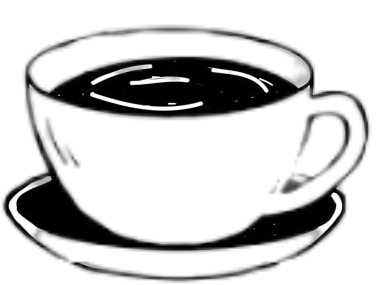
Coffee is a staple for many people around the world. It’s a daily ritual, an energizing elixir that starts their day with comfort and warmth. Yet, there’s one group of people for whom coffee isn’t part of their routine: Mormons. If you’ve ever asked the question, “Why can’t Mormons drink coffee?” you might be curious about the reasons behind this belief. It’s a topic that comes with cultural, religious, and personal insights, which I’ve experienced firsthand as someone who has spent time within the Mormon community and has reflected on their practices regarding this particular question.
In this article, I’ll share my personal experience and insights into why Mormons refrain from drinking coffee. Along the way, I’ll explore the historical and theological background of this practice, the health considerations that inform the decision, and how these factors contribute to the Mormon way of life. I will also discuss some of the practical alternatives Mormons enjoy and how their approach to beverage consumption reflects broader principles of faith and discipline.
The Role of Faith in the Mormon Lifestyle
Before diving into the specifics of why Mormons don’t drink coffee, it’s essential to understand the guiding principles of the Mormon faith. The Church of Jesus Christ of Latter-day Saints (LDS), also known as the Mormon Church, teaches that individuals should live their lives according to the teachings of the Book of Mormon, the Bible, and other sacred texts. These teachings encourage members to maintain a healthy lifestyle, avoid substances that can harm the body, and make choices that promote spiritual growth.
One of the cornerstones of this lifestyle is the Word of Wisdom, a health code given to the early members of the LDS Church. This health code, which can be found in the Doctrine and Covenants (a section of LDS scripture), outlines specific guidelines about what is healthy and acceptable for the body. It is from the Word of Wisdom that the prohibition against coffee originates.
Why Can't Mormons Drink Coffee?
The prohibition of coffee is directly tied to the Word of Wisdom, which forbids the consumption of "hot drinks." While the original text did not specifically name coffee or tea, leaders of the LDS Church have since interpreted this commandment as applying to these two beverages. The rationale behind this is that these "hot drinks" have adverse effects on the body, both because of their temperature and their stimulating properties. Caffeine, found in both coffee and tea, is known for its stimulating effects, which can lead to addiction or dependence.
Growing up in a Mormon household, I remember the clear distinction made between coffee and other beverages. While it wasn’t framed as a moral issue, it was always clear that coffee was off-limits. The reasoning behind this was deeply rooted in spiritual discipline. For Mormons, following the Word of Wisdom is about more than just avoiding caffeine; it’s about cultivating self-control and honoring the body as a temple. Coffee was seen as a potential source of harm, not just because of its caffeine content but also because of the ritual of dependency it might create.
The Health Perspective: Is Coffee Really That Bad?
One of the most common questions people ask is whether coffee is really as harmful as Mormons are taught to believe. From a health perspective, coffee has both positive and negative effects. On the one hand, research shows that moderate coffee consumption can reduce the risk of certain diseases, improve cognitive function, and provide antioxidants. On the other hand, excessive consumption of coffee can lead to anxiety, sleep disturbances, and digestive issues.
Mormon teachings, however, don’t focus solely on the potential negative effects of coffee. Instead, the emphasis is on maintaining control over one’s life, and abstaining from coffee is viewed as a way to achieve spiritual clarity. While some members of the LDS Church may be less strict about their adherence to the Word of Wisdom, the prohibition of coffee remains a deeply ingrained part of their faith and daily practice.
Alternatives to Coffee: What Do Mormons Drink Instead?
Growing up in a Mormon household, I was always encouraged to find alternatives to coffee. These substitutes provide the warmth and comfort of a hot beverage without the use of caffeine. The most popular alternative among Mormons is herbal tea, which does not contain caffeine and can be made with a variety of flavors. Some of the more popular options include chamomile, peppermint, and rooibos. Herbal teas provide the same cozy feeling of a warm beverage without violating the Word of Wisdom.
Another alternative that I’ve come to enjoy is hot chocolate. While it’s often seen as more of a winter treat, hot chocolate can be enjoyed year-round. It offers a comforting sweetness and is perfect for gatherings or quiet moments alone. Mormons can also enjoy fruit juices, water, or milk, all of which are allowed under the Word of Wisdom.
There’s also a growing trend of coffee substitutes that mimic the taste and texture of coffee without actually containing caffeine. Products like “Mormon Coffee” or roasted grain beverages offer a coffee-like experience without the adverse effects of caffeine. I’ve personally tried some of these substitutes, and while they don’t exactly replicate the rich flavor of traditional coffee, they come quite close and satisfy the craving for a warm, flavorful beverage.
How This Practice Reflects Mormon Values
For Mormons, avoiding coffee isn’t just about health or following rules; it’s about aligning their behavior with deeply held spiritual values. The Word of Wisdom teaches Mormons that their bodies are temples, and they should treat them with respect. By avoiding coffee, Mormons believe they are living in harmony with God’s will and striving for a higher state of physical and spiritual purity.
Additionally, the act of abstaining from coffee is a daily reminder to exercise self-control and discipline. It’s a way of keeping one’s focus on what is truly important—family, faith, and personal development. In this context, the avoidance of coffee is not seen as a burden, but rather as a way to enhance one’s spiritual journey and develop a closer relationship with God.
My Personal Experience: Living Without Coffee
As someone who grew up within the Mormon faith, I’ve always adhered to the principle of avoiding coffee. While I never felt like I was missing out on anything, I can understand why some might be skeptical about the practice. Coffee is such a ubiquitous part of culture, and it’s easy to feel left out when others around you are enjoying their morning cups of joe.
However, over the years, I’ve come to appreciate the reasons behind the prohibition. By avoiding coffee, I’ve learned to be more mindful of my body’s needs. I’ve also come to enjoy the alternatives I mentioned earlier, and they’ve become an integral part of my daily routine. Whether it’s sipping on herbal tea while reading a book or sharing a warm cup of hot chocolate with family, these beverages have helped create meaningful moments of connection in my life.
Product Review Conclusion
In conclusion, the question of "Why can't Mormons drink coffee?" is more complex than it may first appear. It’s not just about avoiding caffeine or following a rule; it’s about living a life that aligns with spiritual principles. Mormons believe that by abstaining from coffee, they are honoring their bodies and making space for higher spiritual growth. While there are health considerations at play, the underlying reason is deeply connected to faith, discipline, and personal well-being.
As someone who has lived this way for years, I can confidently say that avoiding coffee hasn’t detracted from my life in any meaningful way. Instead, it’s allowed me to explore other warm beverages that support my physical and spiritual health. The benefits of abstaining from coffee are evident not only in terms of personal discipline but also in terms of developing a deeper understanding of what it means to live a life of faith.
FAQ
Q: Why is coffee specifically mentioned in the Mormon faith?
A: Coffee is prohibited in the Mormon faith because of the Word of Wisdom, a health code given to early members of the LDS Church. It prohibits "hot drinks," which has been interpreted to include coffee and tea. The practice reflects the emphasis on maintaining physical and spiritual health, avoiding substances that might cause dependency or harm.
Q: Can Mormons drink decaffeinated coffee?
A: Decaffeinated coffee is generally not recommended in the Mormon faith because it is still considered a "coffee product," even though it lacks the stimulating effects of caffeine. Mormons are encouraged to avoid coffee altogether, opting instead for herbal teas or other caffeine-free beverages.
Q: Are there any health benefits to avoiding coffee?
A: Avoiding coffee can help prevent dependence on caffeine, reduce the risk of anxiety or sleep disturbances, and promote a more consistent energy level throughout the day. For Mormons, the primary benefit is spiritual discipline, but the health advantages are also a factor.
Q: What are some popular alternatives to coffee for Mormons?
A: Popular coffee alternatives for Mormons include herbal teas like chamomile, peppermint, and rooibos, as well as hot chocolate, fruit juices, or non-caffeinated coffee substitutes like roasted grain beverages. These drinks provide the same comfort and warmth without the use of caffeine.
Q: How does avoiding coffee affect Mormon social life?
A: While some might feel excluded from coffee-centric social situations, Mormons often bond over shared alternatives like herbal tea or hot chocolate. The focus is on social connection and faith, rather than the specific beverage being consumed.
